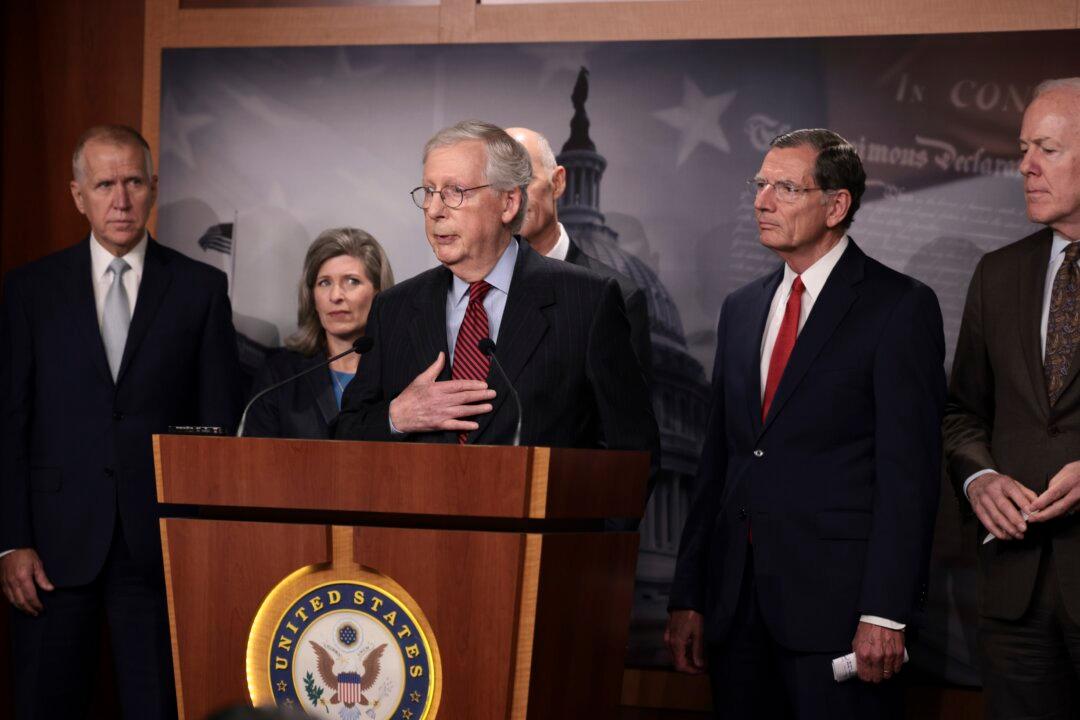Senate Republicans won’t vote to raise the country’s debt limit because of Democrats’ plans to spend trillions of dollars, Senate Minority Leader Mitch McConnell (R-Ky.) and other Republican leaders said on Sept. 22.
The House of Representatives voted this week along party lines to approve a bill that includes suspending the debt limit until after the 2022 midterm elections. The Senate plans to vote on the measure next week.





